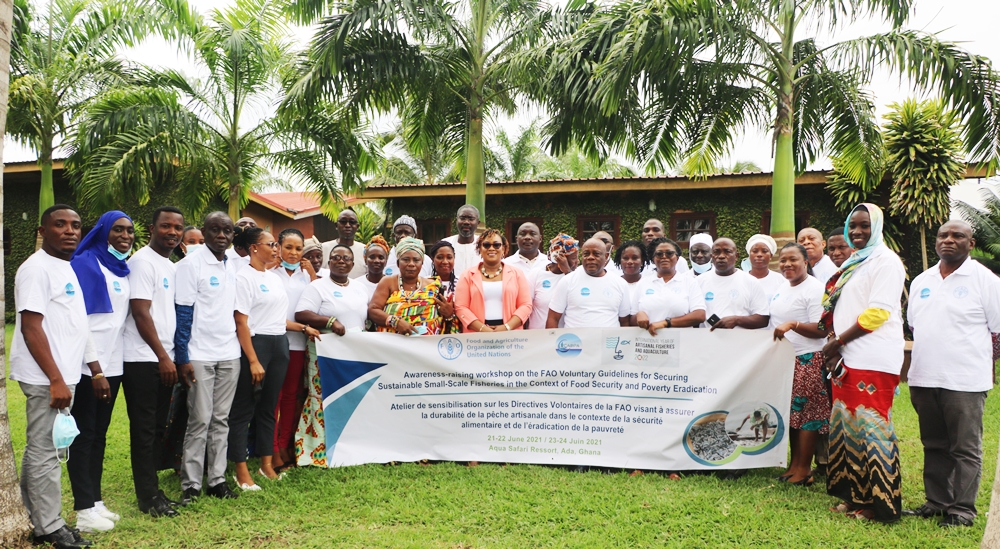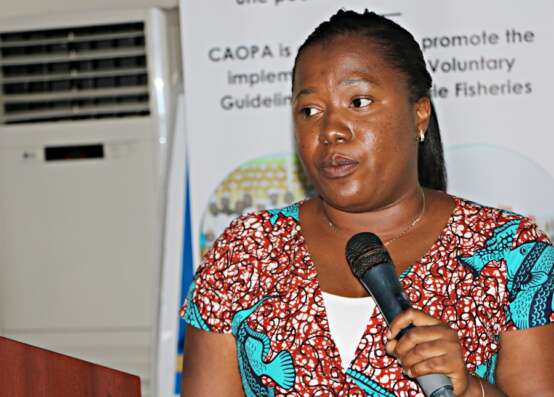“They have fed the world. They have come from a place where they have been ignored. And now for the first time the world is looking in their direction. They are too big to ignore… Small-scale fisher’s lives matter.” Rebecca SACKEY-MENSAH, Snr. Fisheries Manager at Ghana Fisheries Commission.
The African Confederation of Professional Organizations in Artisanal Fisheries (CAOPA) in partnership with the Food and Agriculture Organization of the United Nations, Regional Office for Africa (FAORAF) and the Ghana National CANOE Fishermen Council (GNCFC) organized an “information sharing and awareness raising workshop on FAO Voluntary Guidelines for Securing Sustainable Small-scale Fisheries (SSF-VG).
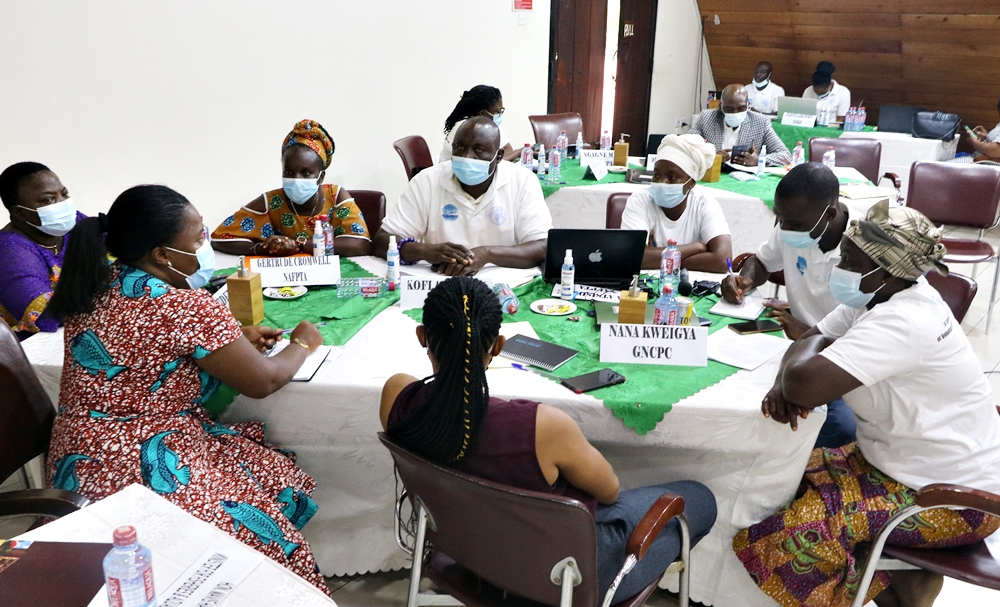 From 21 to 22 June 2021, in Ada, Greater Accra Region (110 km from Accra), the workshop mobilized some forty artisanal fisheries professionals, civil society support organizations, representatives of the administrations concerned (research, administrations in charge of fisheries, the environment, education, etc.), and staff of the regional FAO
From 21 to 22 June 2021, in Ada, Greater Accra Region (110 km from Accra), the workshop mobilized some forty artisanal fisheries professionals, civil society support organizations, representatives of the administrations concerned (research, administrations in charge of fisheries, the environment, education, etc.), and staff of the regional FAO
The objective was to “exchange on the content and approach of the SSF Voluntary Guidelines… for an upgrading of the stakeholders; and to reflect on the development of a national action plan for sustainable small-scale fisheries“.
During the two days, participants discussed the content of SSF Guidelines, the situation of artisanal fisheries in Ghana, ways and means of implementing the SSF Guidelines at the national level (National Action Plan) including: [identifying the most urgent aspects and issues to be addressed such as: food security, poverty eradication, job creation and consolidation, governance emphasizing equity mainly with regard to women, sustainable management of resources in an enabling environment]; identify possible priority areas of intervention and stakeholders; and finally, the setting up of an operational mechanism for coordination and monitoring and evaluation of activities.
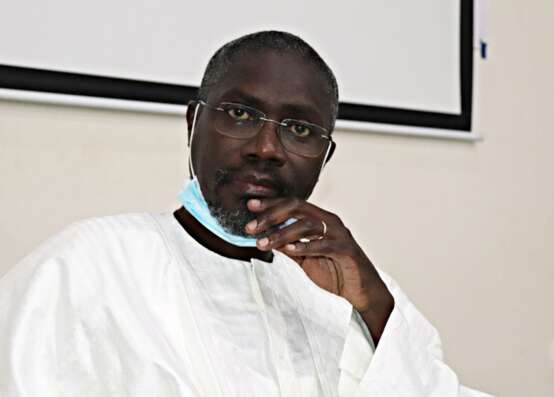 The FAO-RAF Fisheries and Aquaculture Representative said: “This workshop is a continuation of a long-standing collaboration between FAO, its sub-Saharan African members and CAOPA, and is part of the global process to ensure the sustainability of small-scale fisheries.”
The FAO-RAF Fisheries and Aquaculture Representative said: “This workshop is a continuation of a long-standing collaboration between FAO, its sub-Saharan African members and CAOPA, and is part of the global process to ensure the sustainability of small-scale fisheries.”
Ndiaga GUEYE says that small-scale fishing plays an important role in poverty reduction and food security in the African region. It is also a link in a long chain of social, cultural and economic activities that contribute to the well-being of local communities and society in general, where fishing is not only an economic activity, but also part of the culture, identity and way of life of fishing communities.
“The implementation of the Voluntary Guidelines on Small-scale Fisheries should be seen as a progressive process. Its history informing the present, allowing artisanal fisheries actors to access a formal forum to express their views on the future governance of artisanal fisheries,” advised Mr GUEYE.
Importance of artisanal fisheries in Ghana
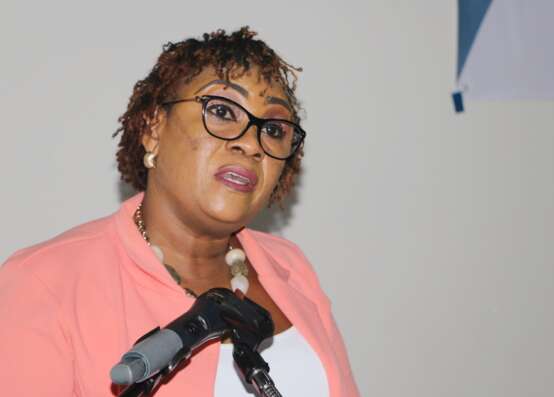 The Minister of Fisheries, Aquaculture and Development of Ghana has indicated that artisanal fisheries and women fish processors play an important role in the development and management of fisheries in our respective countries. According to Hon. Mavis Hawa KOOMSON, in Ghana, fish production from the artisanal fisheries sub-sector accounts for more than 70% of the total national production per year. The Ministry’s number reports that “14% of the workforce in the fishing industry is women and that 60% of those involved in the post-capture sub-sector are women”. She therefore acknowledged that artisanal fishers and women fish processors are the backbone of Ghana’s fishing industries.
The Minister of Fisheries, Aquaculture and Development of Ghana has indicated that artisanal fisheries and women fish processors play an important role in the development and management of fisheries in our respective countries. According to Hon. Mavis Hawa KOOMSON, in Ghana, fish production from the artisanal fisheries sub-sector accounts for more than 70% of the total national production per year. The Ministry’s number reports that “14% of the workforce in the fishing industry is women and that 60% of those involved in the post-capture sub-sector are women”. She therefore acknowledged that artisanal fishers and women fish processors are the backbone of Ghana’s fishing industries.
For his part, the Executive Representative of the Ghana National CANOE Fishermen Council (GNCFC) stressed the importance of the sector in Ghana. “In Ghana, fishing is the main source of employment, food and nutrition for over 200 vulnerable fishing communities,” said Nana Jojo Solomon.
According to him, fisheries provide livelihoods for over 2.7 million Ghanaians along the value chain, and direct employment for over 140,000 fishermen (artisanal fishers) in Ghana’s four coastal regions.
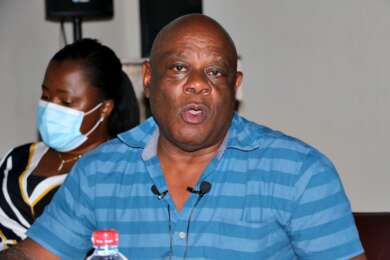 As the hub of regional industrial and artisanal fishing activities, he says, Ghana is well positioned to play a leading role in regional policy formulation and in the fight against illegal fishing, while monitoring and advocacy by neighboring States can promote progress at home.
As the hub of regional industrial and artisanal fishing activities, he says, Ghana is well positioned to play a leading role in regional policy formulation and in the fight against illegal fishing, while monitoring and advocacy by neighboring States can promote progress at home.
Therefore, the artisanal fisheries professional indicated: “to make the SSF Voluntary Guidelines operational, a temporary multi-stakeholder committee including the Ministry of Fisheries and Aquaculture Development, the Fisheries Commission, the Ministry of the Environment, etc. will be set up for the implementation of the SSF VG”.
This provisional committee, he said, would later facilitate the creation of a permanent committee to implement the SSF VG in Ghana. He recalled that the outcomes of the workshop are important in view of the International Year of Artisanal Fisheries and Aquaculture in 2022.
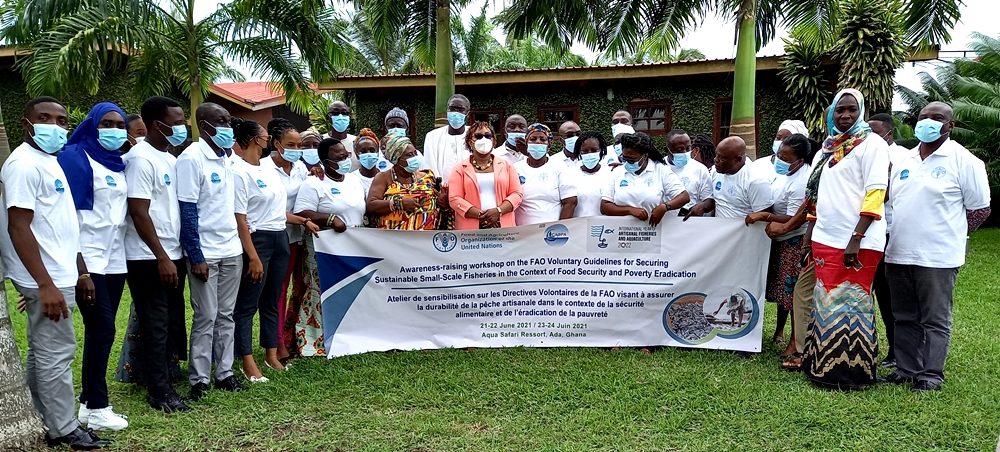 At the end of the meeting, participants identified priorities for the implementation of the SSF Guidelines and made six main recommendations:
At the end of the meeting, participants identified priorities for the implementation of the SSF Guidelines and made six main recommendations:
-
The Ministry of Fisheries and Aquaculture Development/ Fisheries Commission (MoFAD/FC) to facilitate the setting up of a multi stakeholder/sectoral/disciplinary committee to oversee the implementation of SSF Guidelines
-
The MoFAD/FC to promote awareness of the SSF Guidelines among fishers and stakeholders
-
Build capacities of Fisher Associations and all relevant stakeholders
-
incorporate SSF Guidelines into Fisheries Legislation
-
The MoFAD/FC to collaborate with relevant stakeholders to implement the SSF Guidelines
-
Fisher Associations to promote inclusion of women in the implementation of SSF Guidelines


